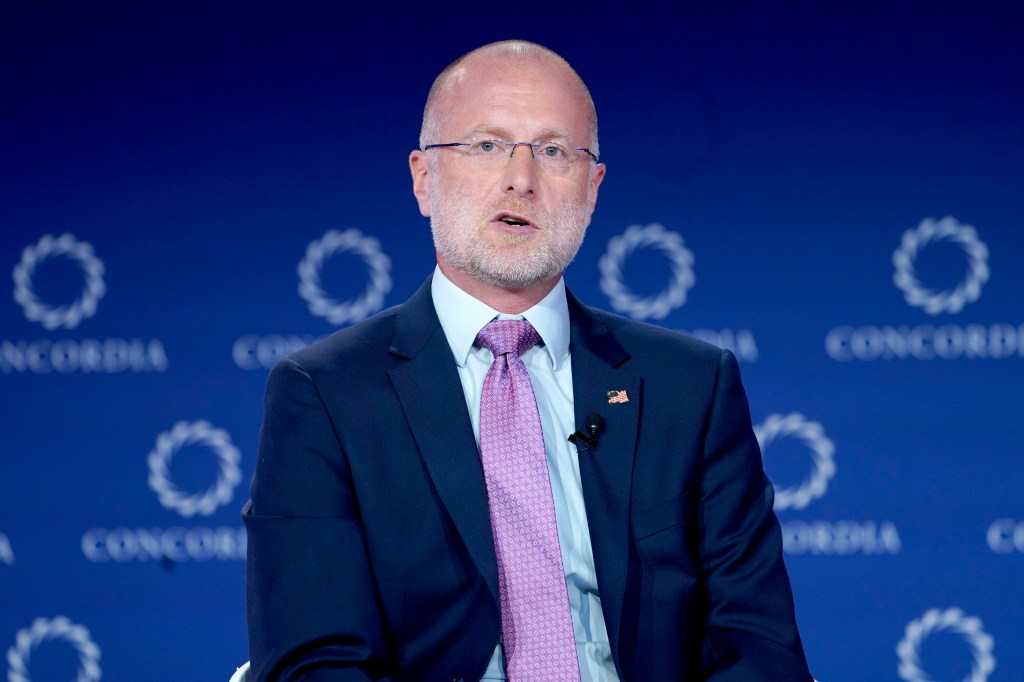FCC Chairman Brendan Carr announced a review of the relationships between broadcast networks and their affiliates, calling into question contractural restrictions that penalize stations for pre-empting shows and those that prevent them from airing rival programming.
The FCC will take comments on a host of issues, rooted in Carr’s belief that networks have gained too much leverage at the expense of local stations.
He wrote on X, “The FCC has an obligation to ensure that local broadcast TV stations meet their public interest obligations. Yet National Programmers operating out of New York & Hollywood are reportedly preventing those broadcasters from serving their local communities—including by punishing them for exercising their right to preempt national programming.”
In September, Carr warned ABC over comments that late-night host Jimmy Kimmel made about Charlie Kirk. Within hours, two large station groups, Sinclair and Nexstar, said that they would not air Kimmel’s show, and ABC said that it was pulling the host off the air.
Kimmel was returned to the broadcast the next week, but Carr framed the episode as a case of local broadcasters revolting against the influence of national programmers.
The FCC Media Bureau notice states that they “seek comment on whether such control is attributable to restrictive conditions in affiliation agreements or a result of an imbalance of power between the networks and their affiliates or other factors.”
Among other things, the FCC is asking for comment on whether “national programmers able to take actions or threaten to punish local broadcast TV stations that attempt to exercise their lawful right to preempt national programming.” The agency also poses the question of whether affiliates “should be allowed to broadcast programs of other networks as well as to schedule their own programs.”
The FCC also seeks comment on “the extent to which networks use their positions in the market to unduly influence the terms of the affiliation agreements with their affiliate stations.” That includes the movement of broadcast programming to streaming platforms, and whether that gives them “leverage to impose burdensome and restrictive terms in the affiliation agreements with their local affiliate stations.”
Since he became chairman, Carr has defended his investigation of networks on everything from diversity, equity and inclusion policies to news programming as within the scope of the FCC’s authority to ensure that broadcasters are operating in the public interest. There have been calls for the FCC to open a proceeding on defining just what the “public interest” means, and Carr has expressed openness to it, but has yet to do so.
The sole Democrat on the commission, Anna Gomez, has been sharply critical of Carr and the Trump administration over threats and warnings made to broadcasters about their programming. Earlier this week, Donald Trump called on ABC to lose its broadcast license after one of its news correspondents asked questions he disliked.
“The FCC doesn’t get to decide whether the news coverage of those in power is acceptable,” Gomez wrote on X. “It has neither the legal authority nor the constitutional right to pursue broadcasters for their journalism. These threats sound ominous, but they’re empty.”
The FCC licenses broadcast stations, not networks, albeit ABC, CBS, NBC and Fox own a number of outlets in major markets.
In the FCC proceeding on network-affiliate relationships, comments are due on Dec. 10 and replies due on Dec. 24. Such comment periods sometimes lead to a rulemaking proceeding, but not always.
The proceeding is hardly the first initiative the FCC has taken to try to boost the power of locals stations. In the 1970s, the agency imposed the primetime access rule, forcing networks to give up the 7:30 p.m. half hour of primetime on weeknights. While the idea was that stations would schedule their own local programming, it proved to be a huge boost to the syndication market, and the slot became a haven for national game shows like Wheel of Fortune and Jeopardy.
